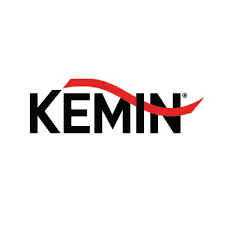4 web-based programs small businesses can utilize

Small businesses have a variety of free or relatively inexpensive tools available online to help them plan, collaborate and keep organized. Here’s a look at four services that small companies can use to their advantage.
Basecamp
Basecamp, a product of 37signals LLC., allows collaborators on a project the ability to share information in one centralized location.
The service is designed to get around the clutter and confusion that goes with sending emails, making telephone calls, sharing files and doing anything else related to a project. At Basecamp, it is all done in one place, with social media-like features such as message posts and comment boxes.
“Any project you are working on, you can put notes, ideas, progress,” said Hillary Brown, a digital strategist at Lava Row Inc. “You can track your time, see how much time you’ve spent on it – so basically it makes you more efficient when you are managing projects.”
Lava Row uses the service to collaborate with clients on projects. It makes the most sense for projects on which larger groups of people are working, Brown said. Some clients like it; some don’t.
“For us, it just keeps everyone in the loop that’s working on it,” Brown said. “It keeps everyone more efficient.”
Plans run from $49 per month to $149 per month, depending on the number of projects and the amount of storage.
Dropbox
This free Internet-based file-sharing system, operated by San Francisco-based Dropbox Inc., serves two primary purposes: to facilitate access to information and to save space on a computer’s hard drive. It can basically act as a server for a small business.
“That’s where we put all our files that we need to access as a group internally,” said Lava Row founder Nathan Wright.
He said it doesn’t make sense to leave larger files, or files that don’t need to be accessed regularly, on Dropbox. The service is more designed for files that multiple users will need to share and files that need to be edited.
Dropbox also works well in tandem with an iPad if the user wants to be able to pull up documents at a meeting with clients without printing the files.
“We don’t bring (paper) documents, ever,” Wright said.
Highrise
Made by the same company that created Basecamp, Highrise is essentially one-part Facebook and one-part address book.
The service allows users to add a contact person’s information and also record previous interactions between the contact and people within the organization. It is designed to allow everyone in the company access to valuable contact information and also to know who has worked with the contact before and what they have worked on.
It’s also searchable by company.
“Any of us can go in and search a company and pull up all the names of people we have put in the system,” Wright said. “It’s really a way of keeping names together.”
He noted that Highrise helps all three people who work at Lava Row share their contacts rather than each keeping a basic spreadsheet.
Plans range from $49 per month to $99 per month.
Google Docs
This Google Inc. product provides an Internet-based alternative to Microsoft Corp.’s Office programs.
Google Docs includes a Word-like document template, Excel-like spreadsheet template and PowerPoint-like presentation template.
The biggest difference – it’s free.
“When we were starting off, we had decided that we would use a lot of tools that are handy, and a lot of the Google tools that are out there are really handy for us,” said Nabeel Meghji, principal of Heartland 2 Africa LLC in Des Moines.
He said the other advantage he found was that most of the organization’s five employees are using Google’s Android system on their smartphones, which makes it easier to use the service.
Google also makes it easy to share files through email, and users with Google Gmail accounts can share files with one another and collaborate on them through the Google Docs program.










